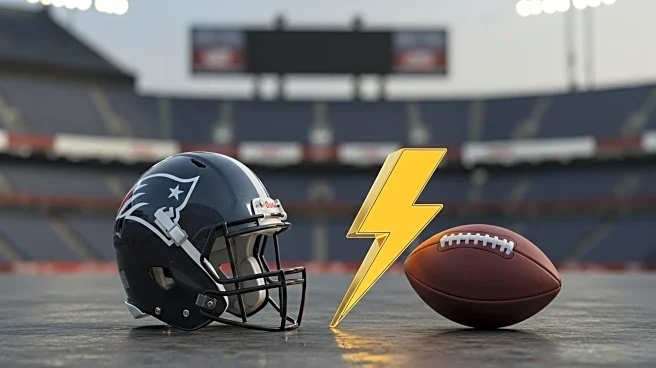What's Happening?
The NCAA has imposed a 10-year 'show cause' order against Jim Harbaugh, the former Michigan coach and current head coach of the Los Angeles Chargers. This sanction is part of the NCAA's response to the Connor Stalions advance-scouting scandal, which highlighted Harbaugh's failure to enforce a culture of compliance during his tenure at Michigan. The NCAA noted that Harbaugh's program had a contentious relationship with Michigan's compliance office, leading to a disregard for NCAA rules. Despite the severity of the sanctions, both the NFL and the Chargers have declined to comment on the matter. Historically, the NFL has imposed its own sanctions on individuals who have been penalized by the NCAA, suggesting that further actions could be considered.
Why It's Important?
The NCAA's sanctions against Jim Harbaugh could have significant implications for his career and the Los Angeles Chargers. The 'show cause' order is a serious penalty that could affect Harbaugh's ability to coach at the collegiate level in the future. Additionally, the NFL's silence on the issue raises questions about potential league actions, which could impact Harbaugh's current role with the Chargers. This situation underscores the ongoing challenges of compliance and ethical conduct in sports, highlighting the potential consequences for teams and coaches who fail to adhere to regulatory standards.
What's Next?
While the NFL and the Chargers have not commented, the league may consider imposing its own sanctions on Harbaugh, as it has done in past cases involving NCAA penalties. The Chargers will need to assess the impact of these sanctions on their team dynamics and coaching strategies. Stakeholders, including fans and sports analysts, will be watching closely to see if the NFL decides to take action, which could influence Harbaugh's future in professional football.
Beyond the Headlines
The NCAA's decision to impose a 'show cause' order on Harbaugh highlights broader issues of compliance and governance within sports organizations. It raises ethical questions about the responsibilities of coaches and the importance of maintaining integrity in sports. This case may prompt discussions about the effectiveness of NCAA regulations and the role of professional leagues in enforcing ethical standards.









